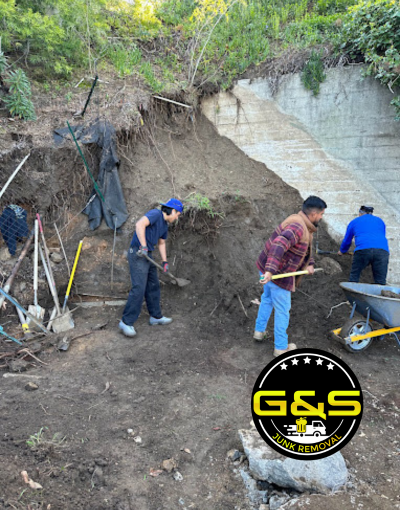Construction projects generate a lot of waste, from concrete and drywall to wood and metal scraps. Keeping a job site clean and organized isn’t just about appearances—it’s crucial for efficiency, safety, and compliance with local regulations. If you’re managing a construction site, understanding proper waste disposal methods can save time, prevent hazards, and ensure compliance with environmental laws.
Why Construction Waste Removal Matters
A cluttered job site can lead to a range of problems, including:
Safety hazards – Debris can cause tripping, falling, or injury from sharp objects.
Project delays – Excess waste slows down work and makes it harder to move materials efficiently.
Environmental concerns – Improper disposal of construction waste can lead to pollution and legal fines.
Regulatory compliance – Cities like Los Angeles have strict guidelines on construction waste disposal, making it essential to follow best practices.
Types of Construction Waste
Understanding the types of waste your project generates will help determine the best disposal methods:
Concrete, bricks, and asphalt – Heavy materials often need specialized disposal or recycling.
Wood and lumber scraps – Usable wood can be repurposed, while treated wood may require special handling.
Drywall and plaster – Some drywall can be recycled, but moldy or contaminated pieces must be disposed of carefully.
Metals (steel, copper, aluminum) – Scrap metals are valuable and should always be recycled.
Plastic and packaging materials – Large amounts of plastic waste from packaging need proper sorting and disposal.

Efficient Ways to Handle Construction Waste
Sort Materials for Recycling – Many construction materials, such as metal, concrete, and wood, can be recycled instead of sent to landfills.
Use On-Site Waste Bins – Having designated bins for different types of waste helps workers dispose of materials properly.
Hire a Professional Junk Removal Service – Companies like G&S Junk Removal specialize in hauling away construction debris in Los Angeles, ensuring compliance with local regulations.
Donate Usable Materials – Items like cabinets, doors, and fixtures can often be reused in other projects or donated to local charities.
Legal Requirements for Construction Waste Disposal
In cities like Los Angeles, construction projects must follow waste disposal regulations, which often include:
Diverting a percentage of waste from landfills through recycling.
Using certified disposal facilities.
Keeping records of waste disposal methods.
How G&S Junk Removal Can Help
If managing construction waste feels overwhelming, G&S Junk Removal offers fast, reliable removal services in Los Angeles. We handle all types of construction debris, ensuring proper disposal and recycling to keep your site clean and compliant.
Final Thoughts
A well-maintained construction site is not only safer but also more efficient. By following proper waste disposal practices, you can reduce hazards, stay compliant with regulations, and keep your project running smoothly. Whether you need regular waste removal or a one-time cleanup, G&S Junk Removal is ready to assist with hassle-free construction debris hauling in Los Angeles.
